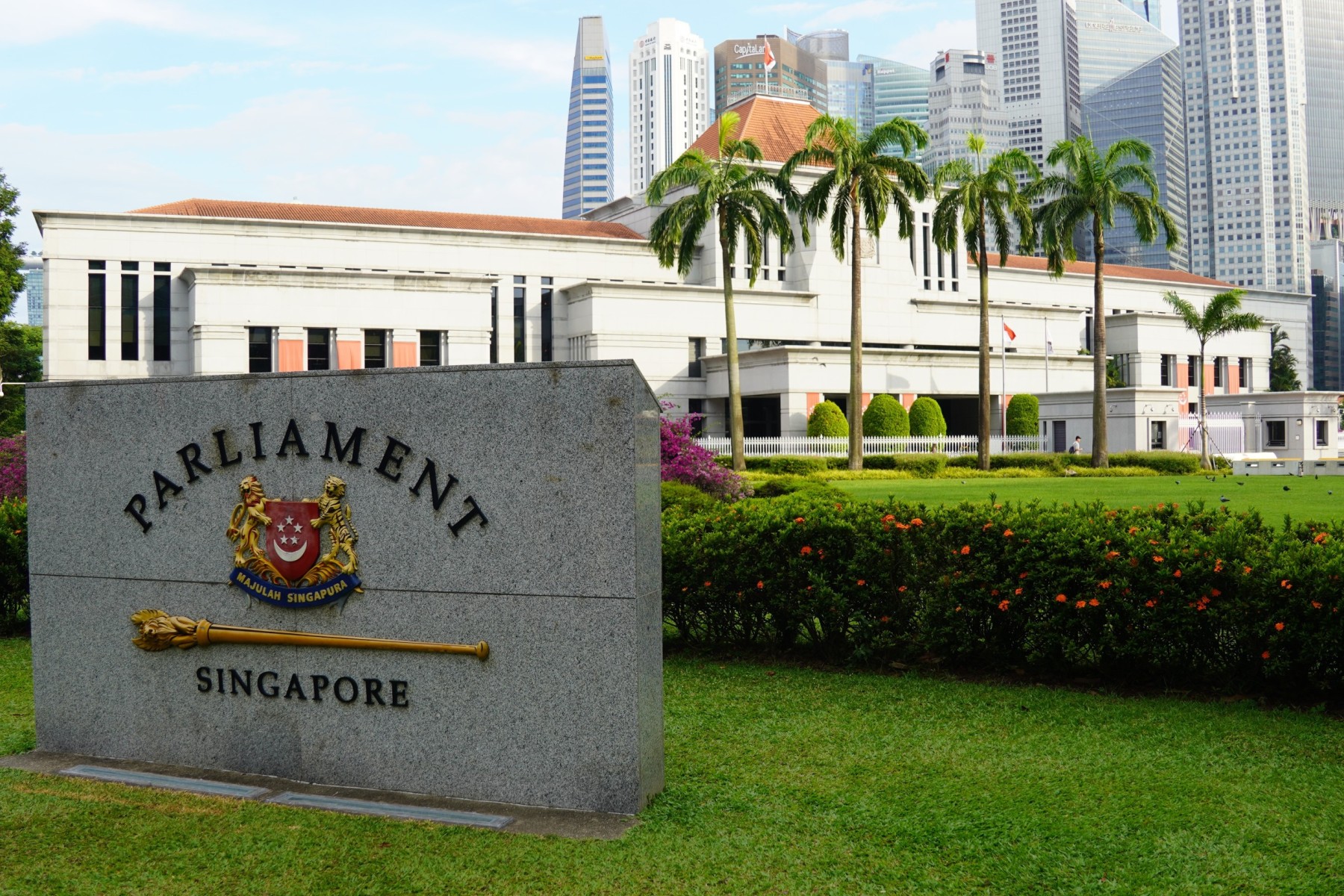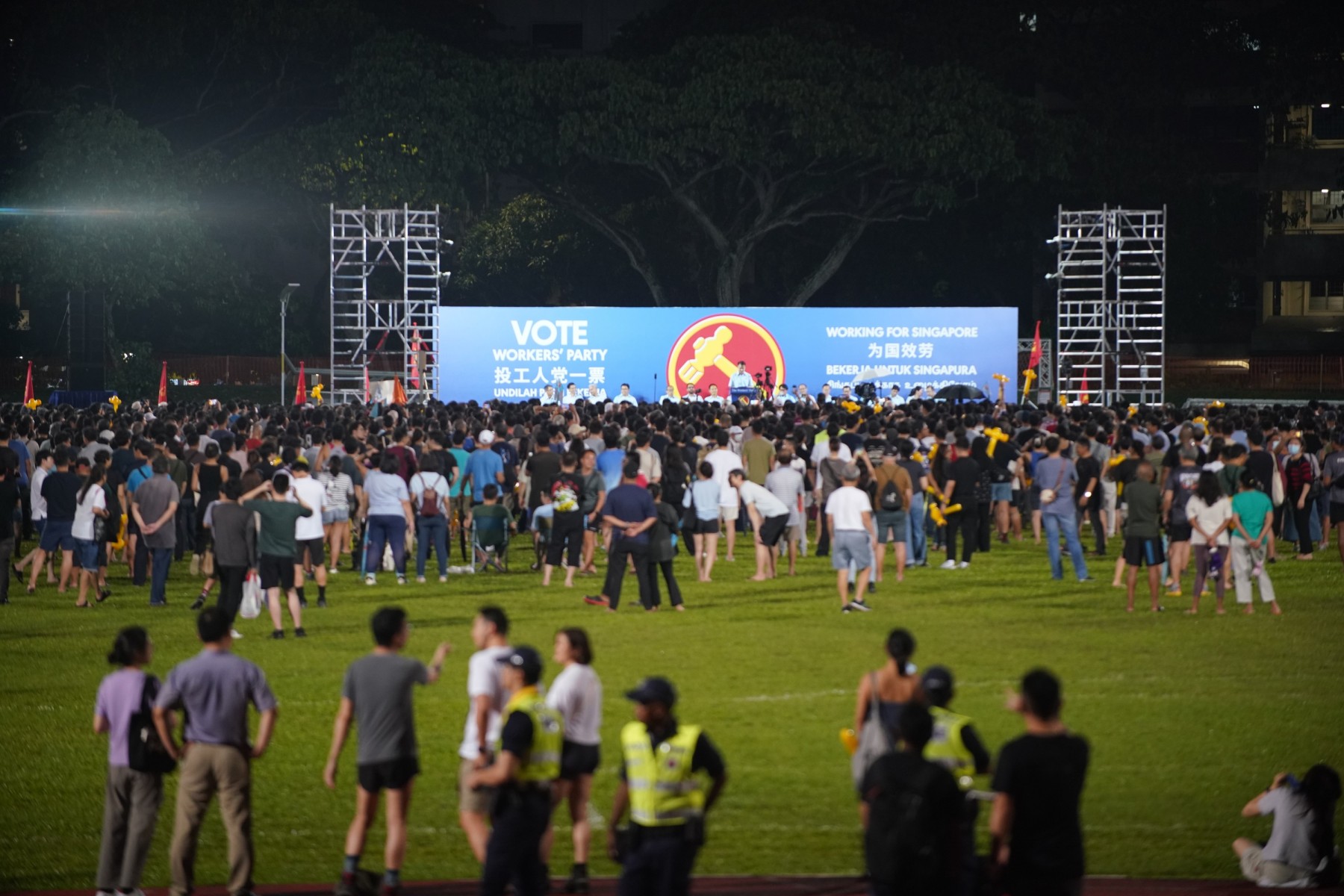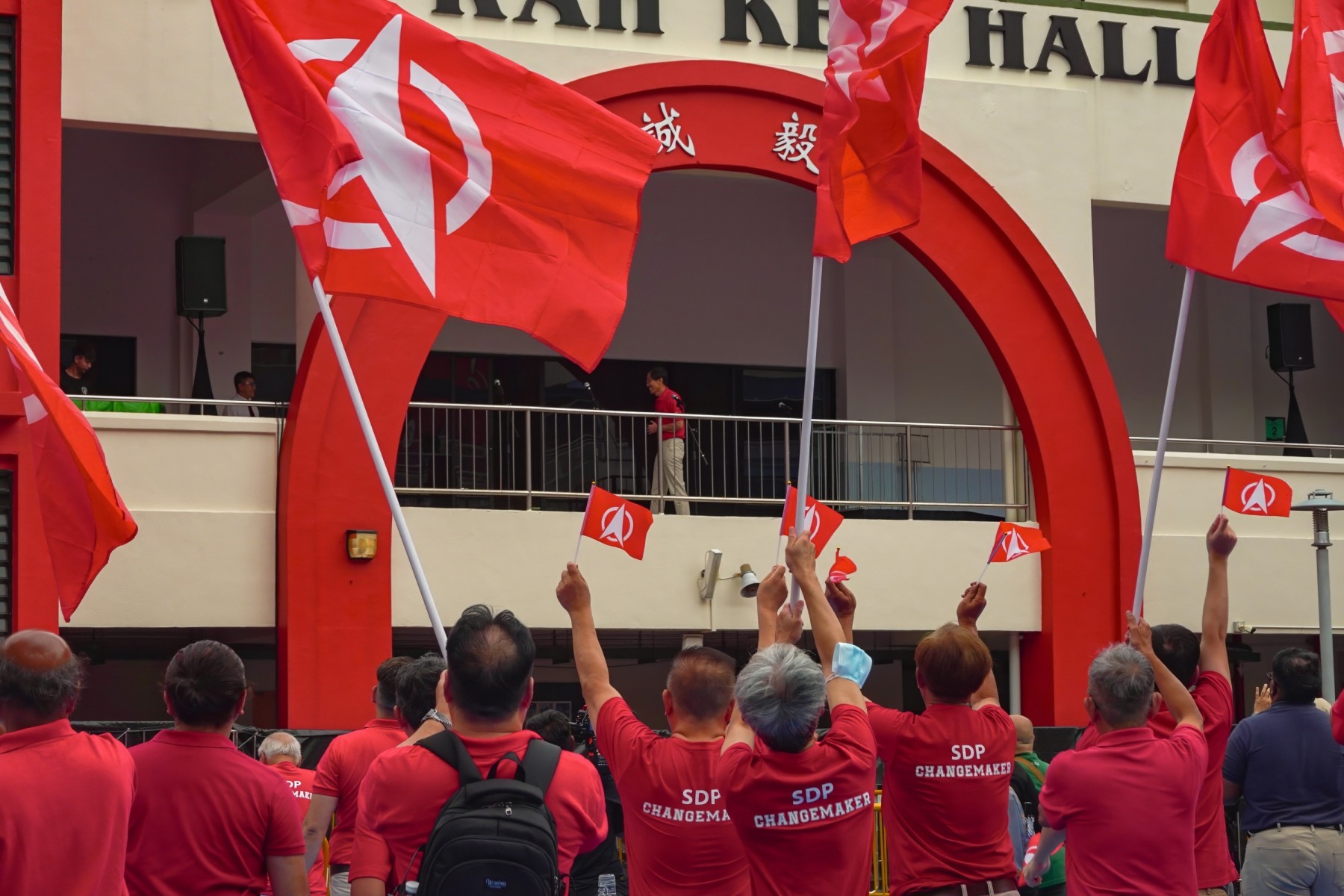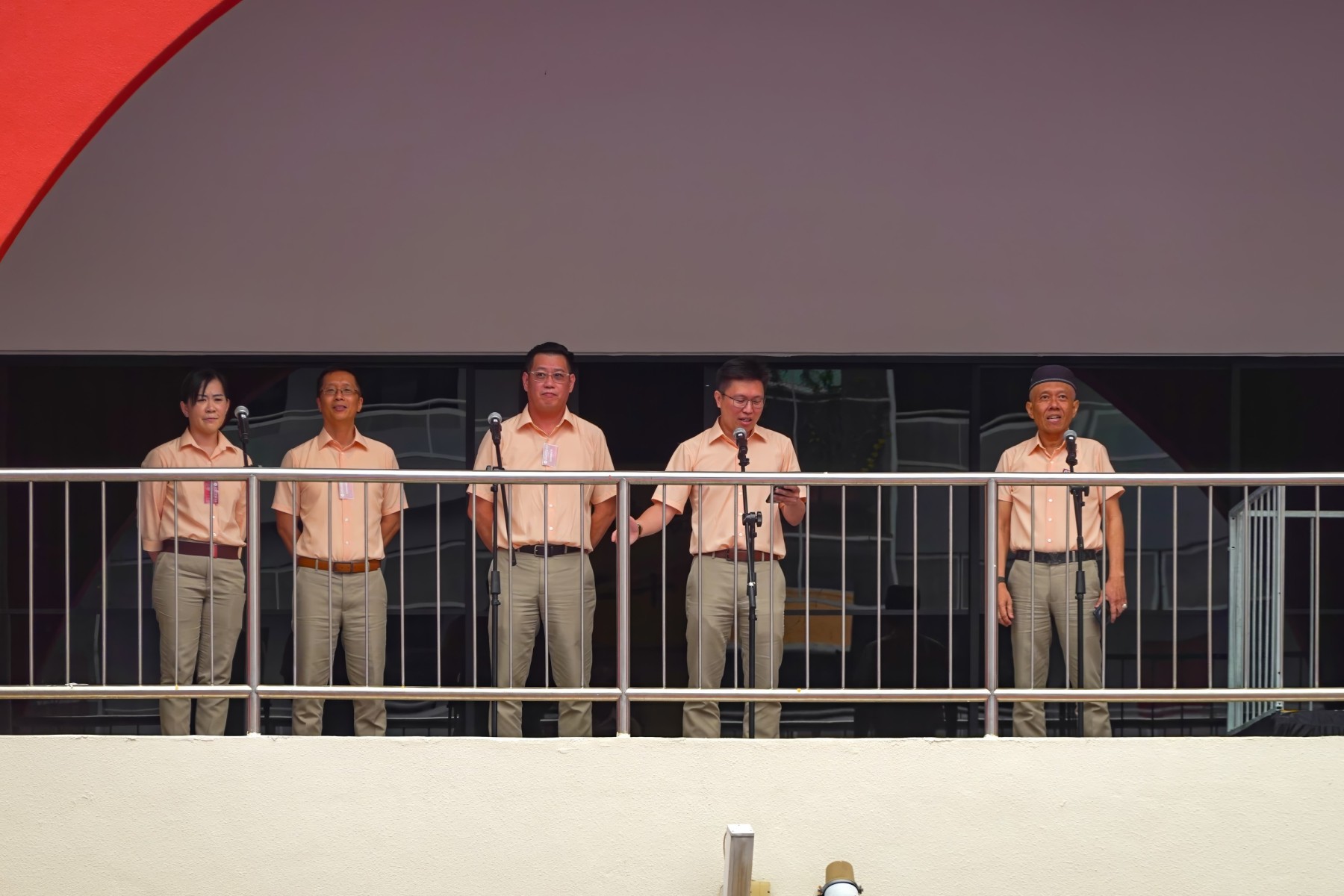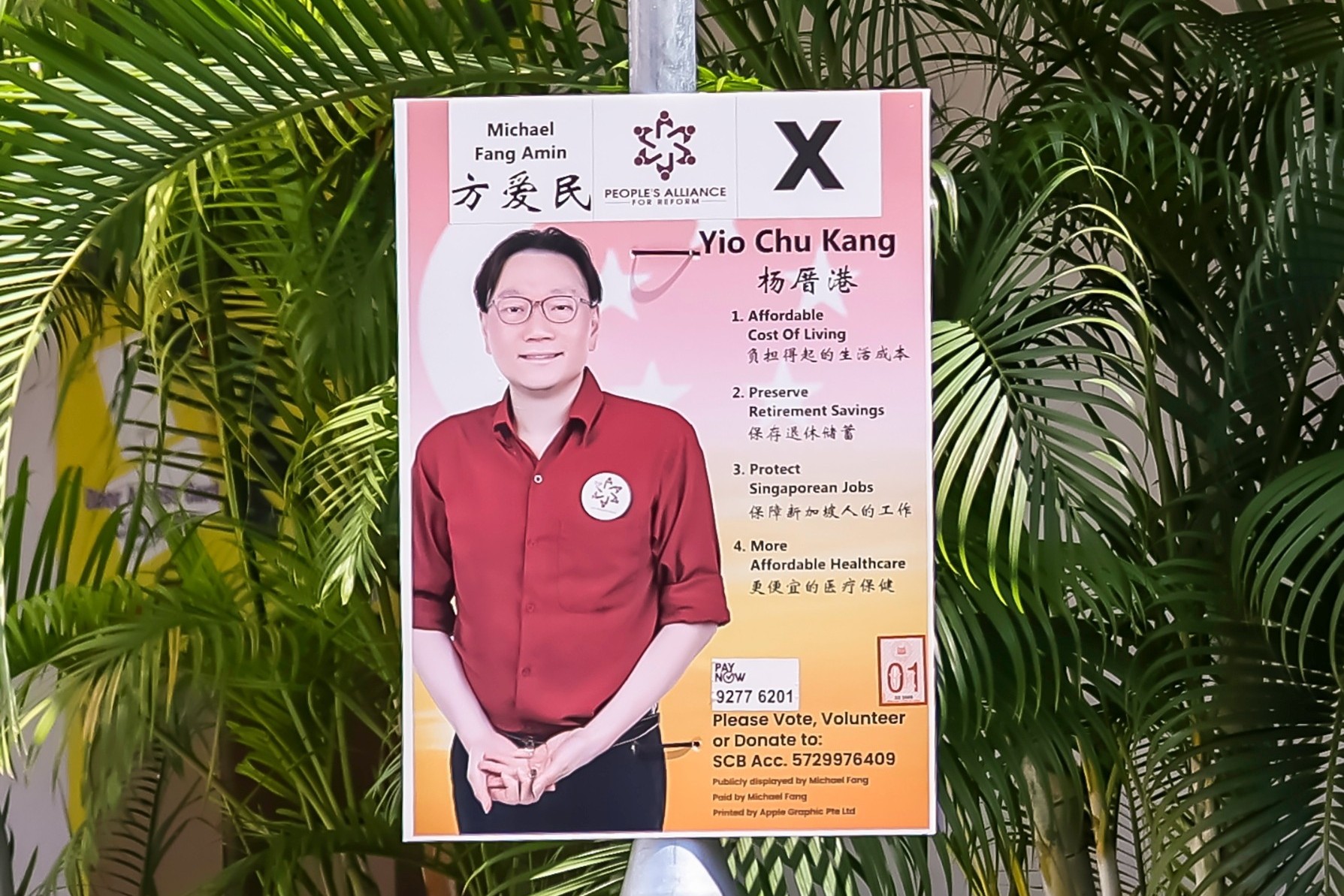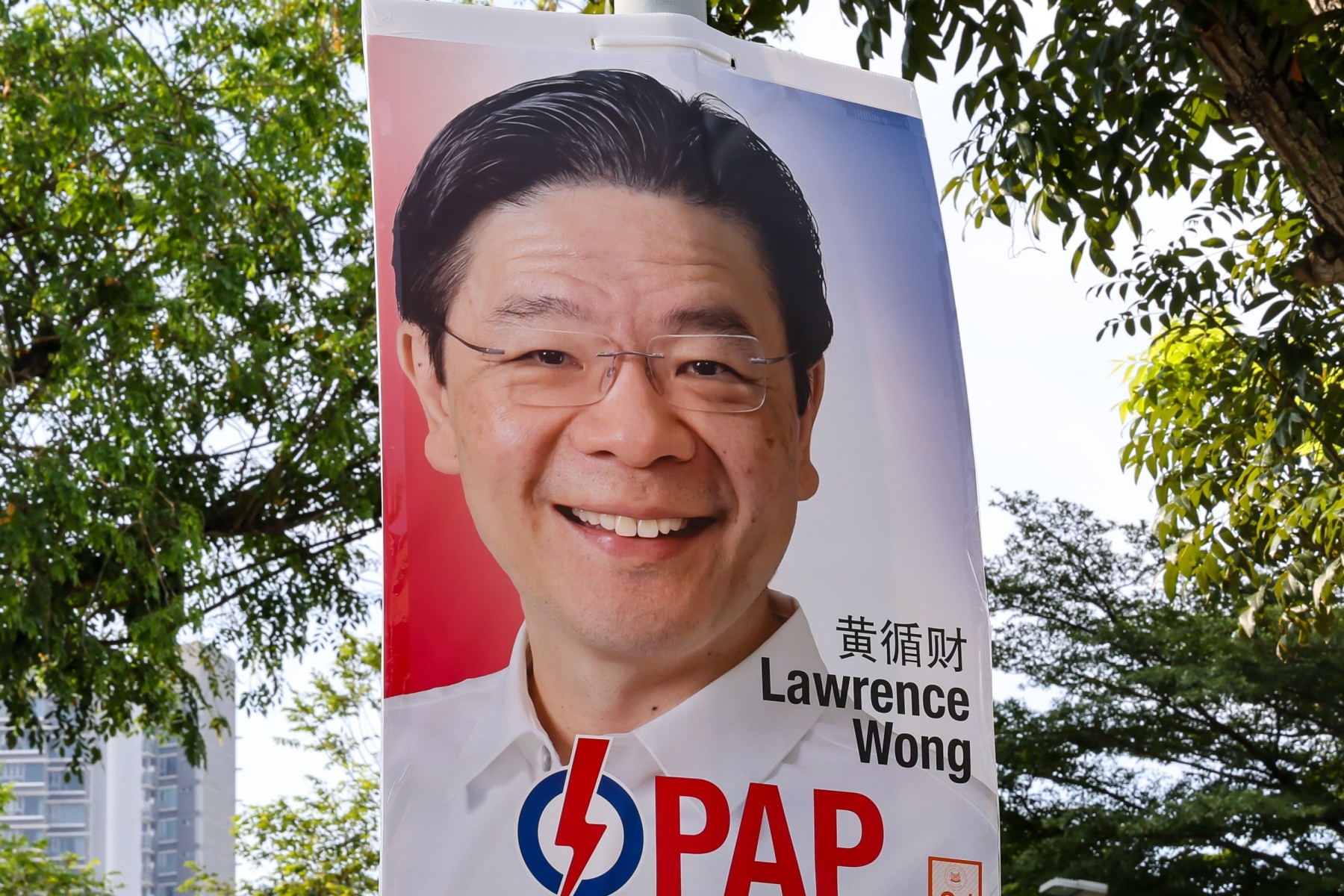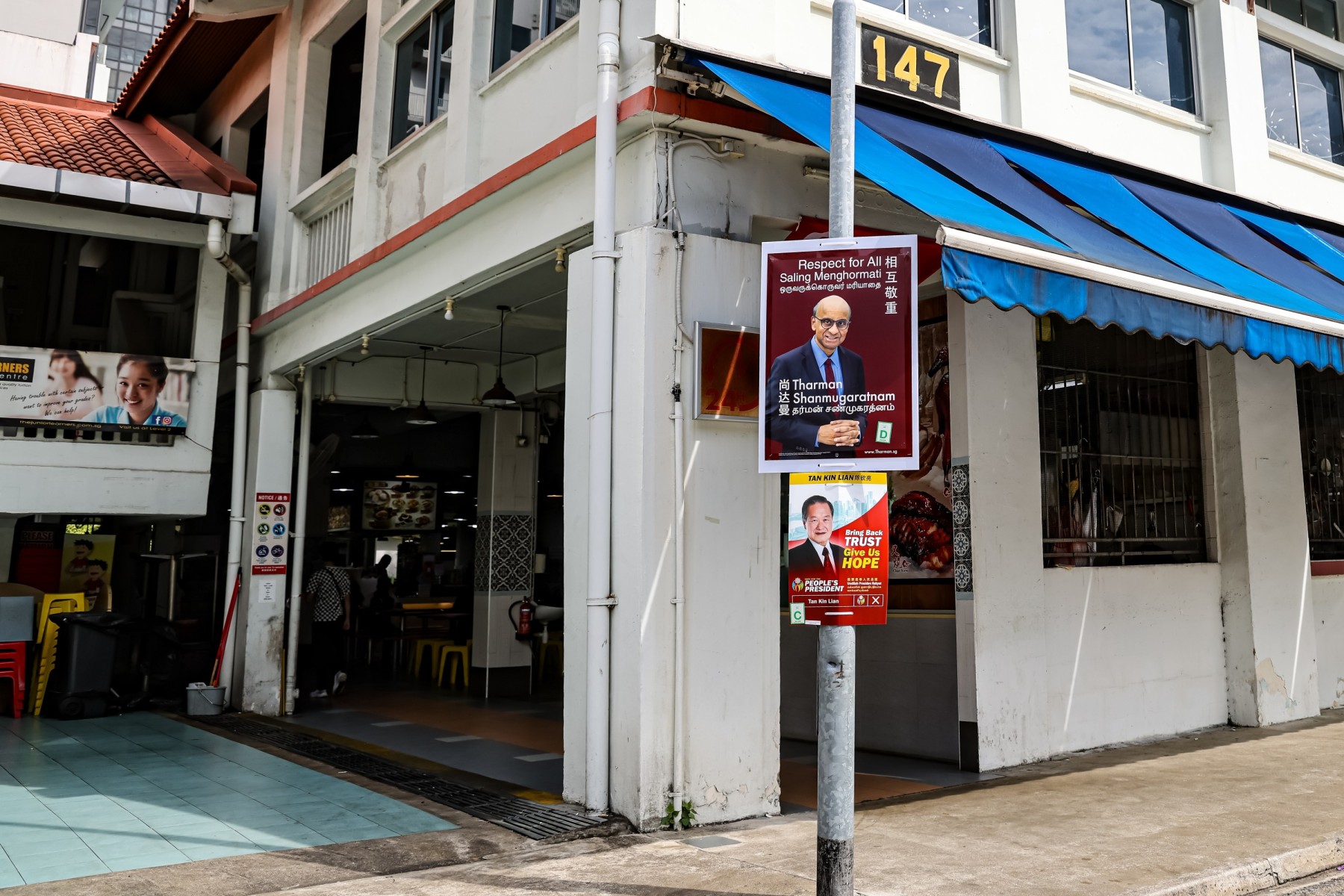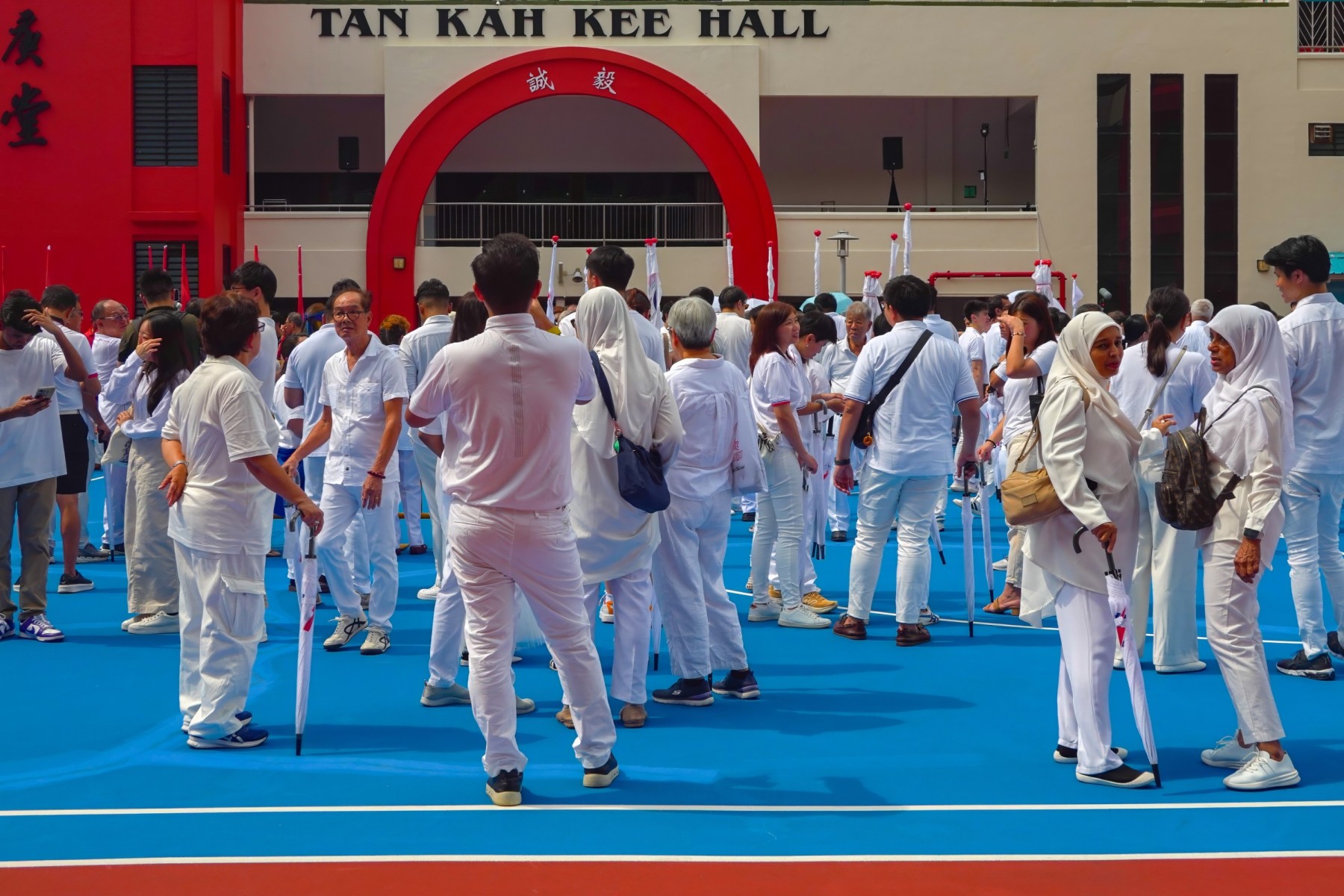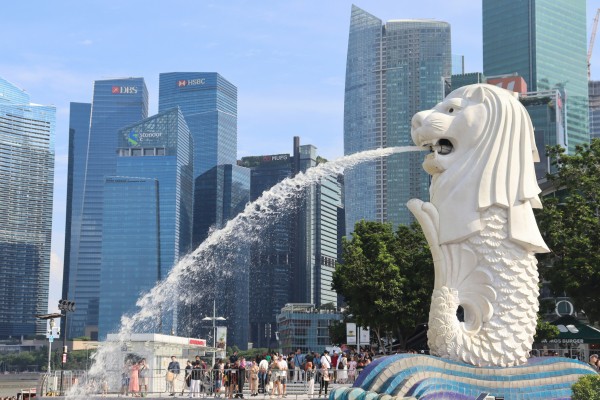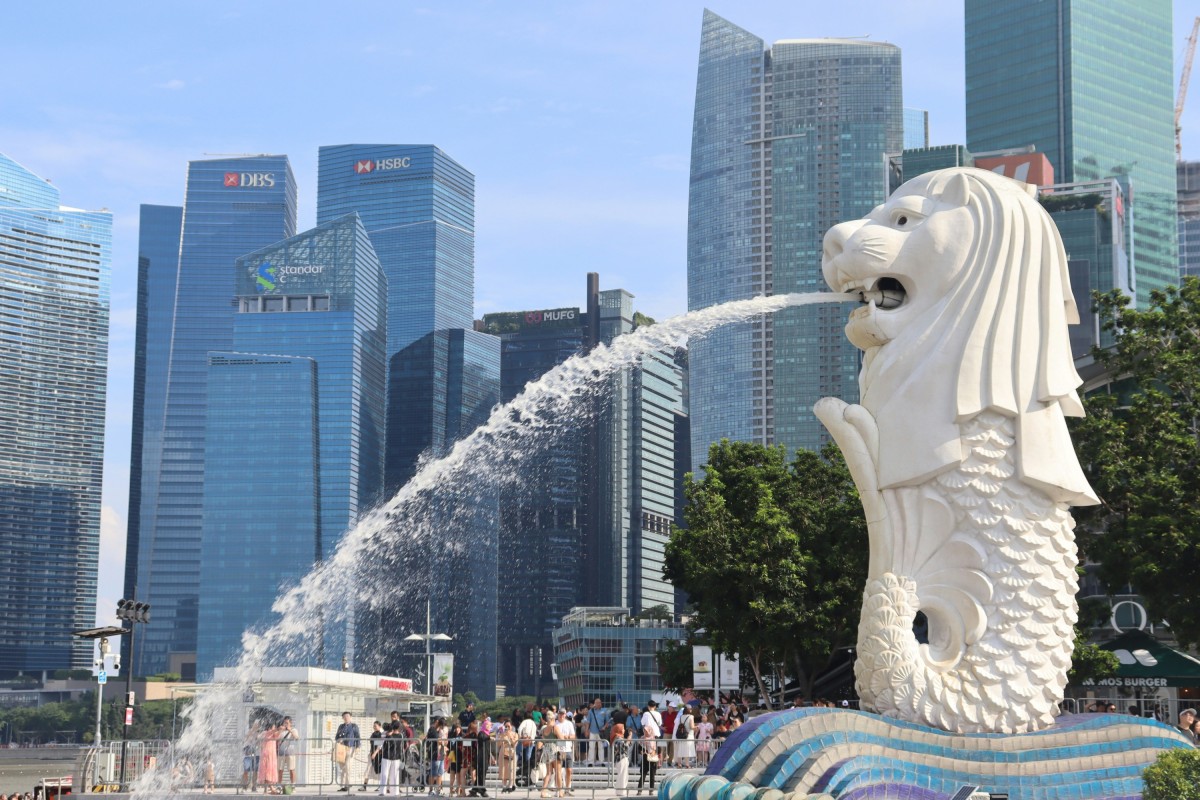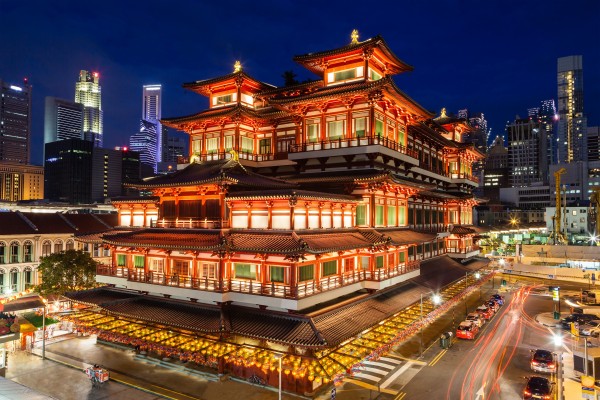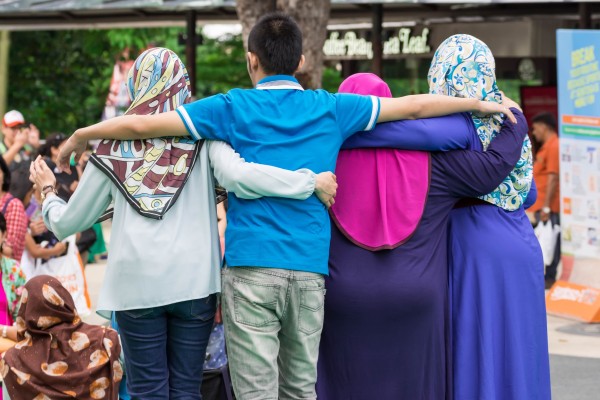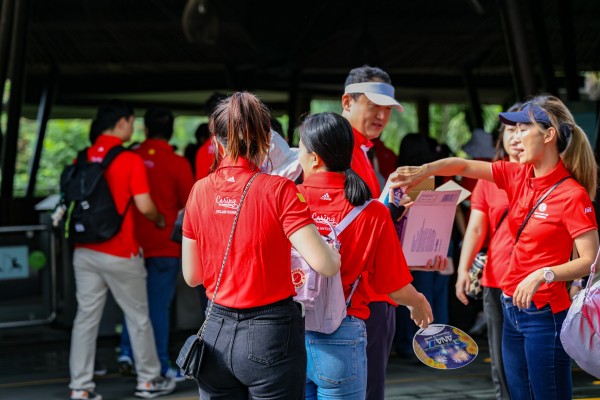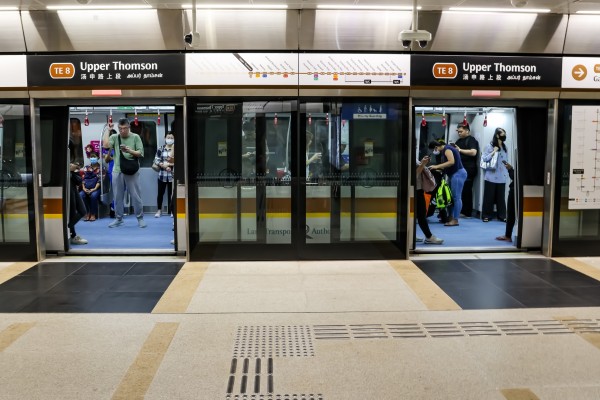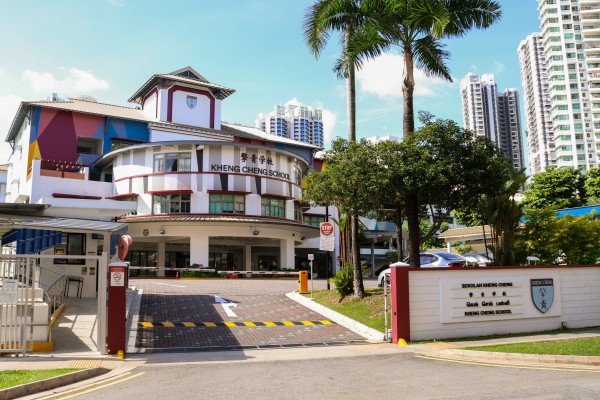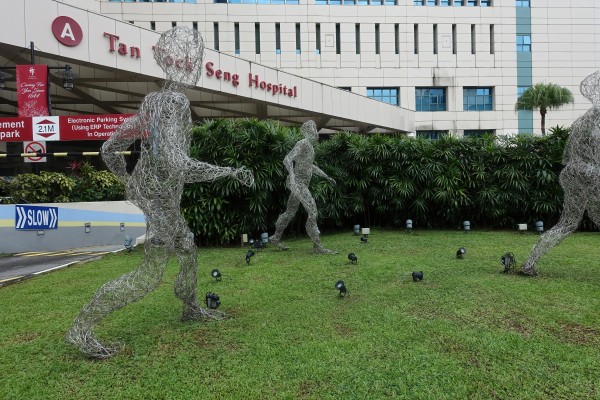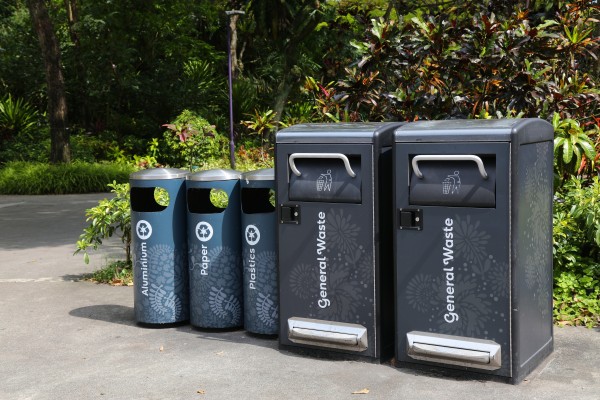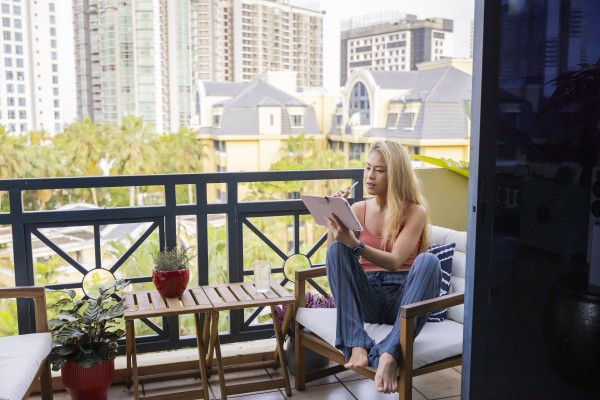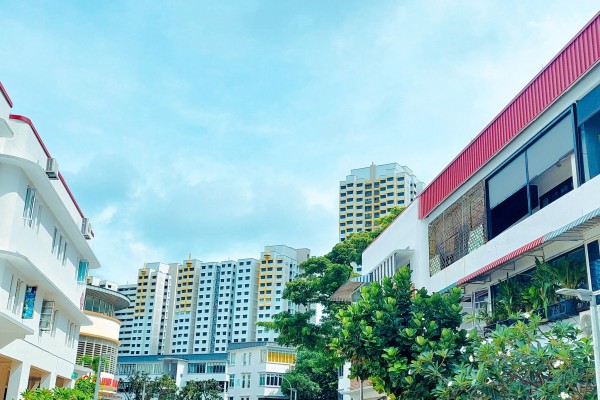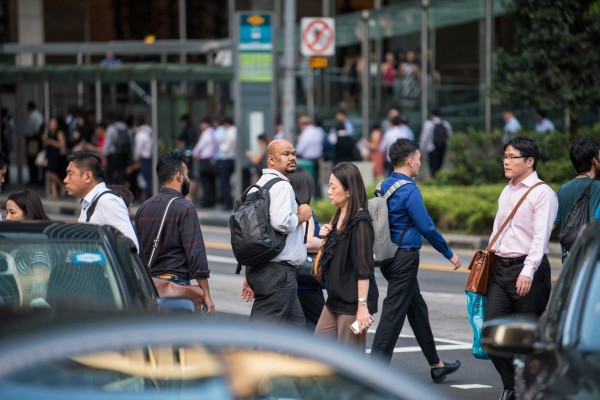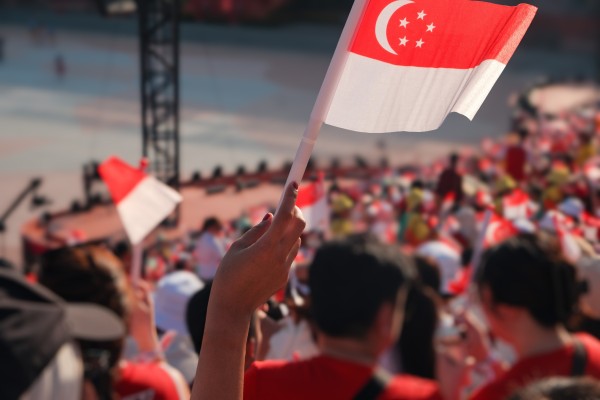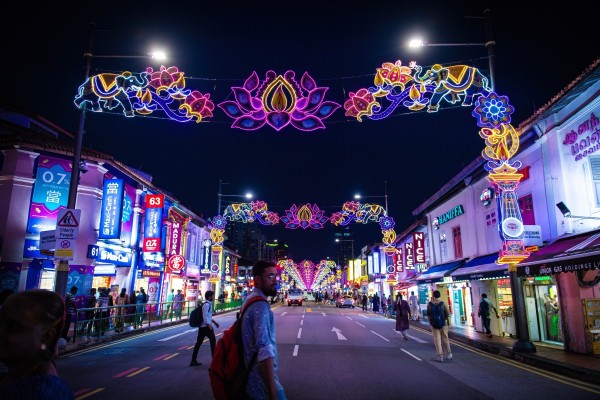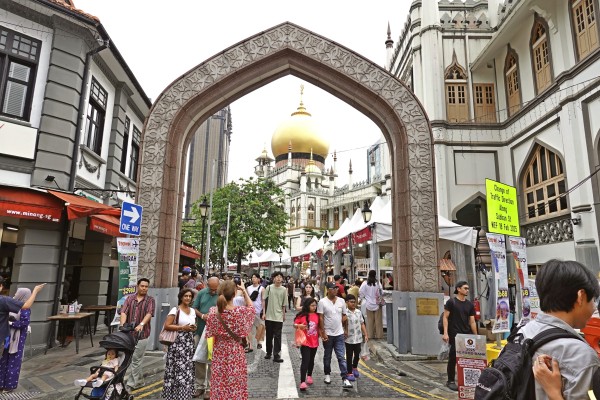Singapore politics explained for beginners

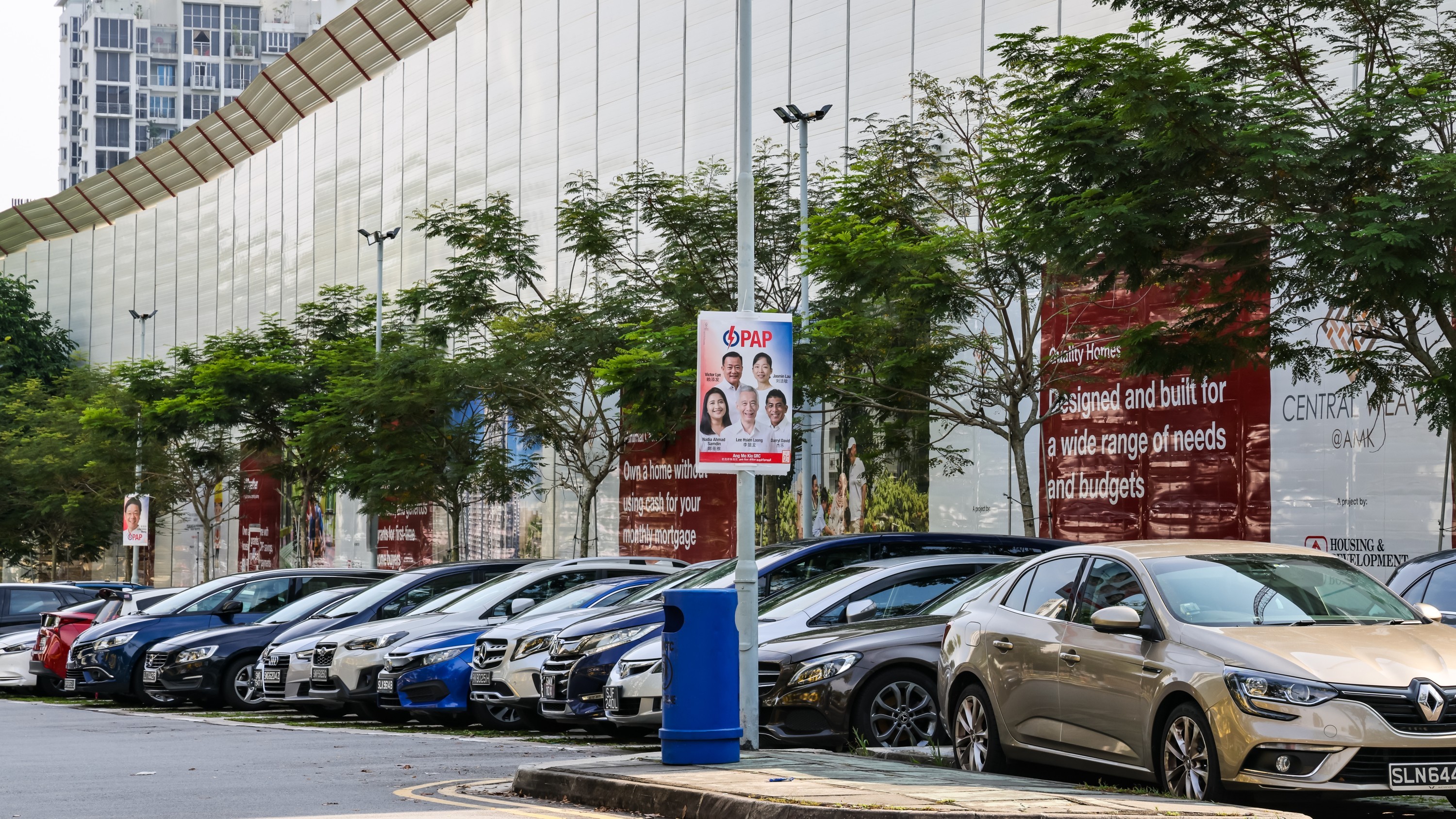
Singapore held its 14th General Election on 3 May 2025. In the lead-up to the polls, the country was abuzz with election coverage across mainstream and social media. With just nine days of campaigning before voting day—one of the shortest timelines in the world—rally speeches, televised debates, social media posts, and news commentaries flooded the public space, making it hard to grasp how the elections actually work.
For newcomers trying to make sense of it all, this guide offers a clear rundown of Singapore’s political system—from its history and unique features to how elections are conducted and who is eligible to vote.
Overview of Singapore’s political system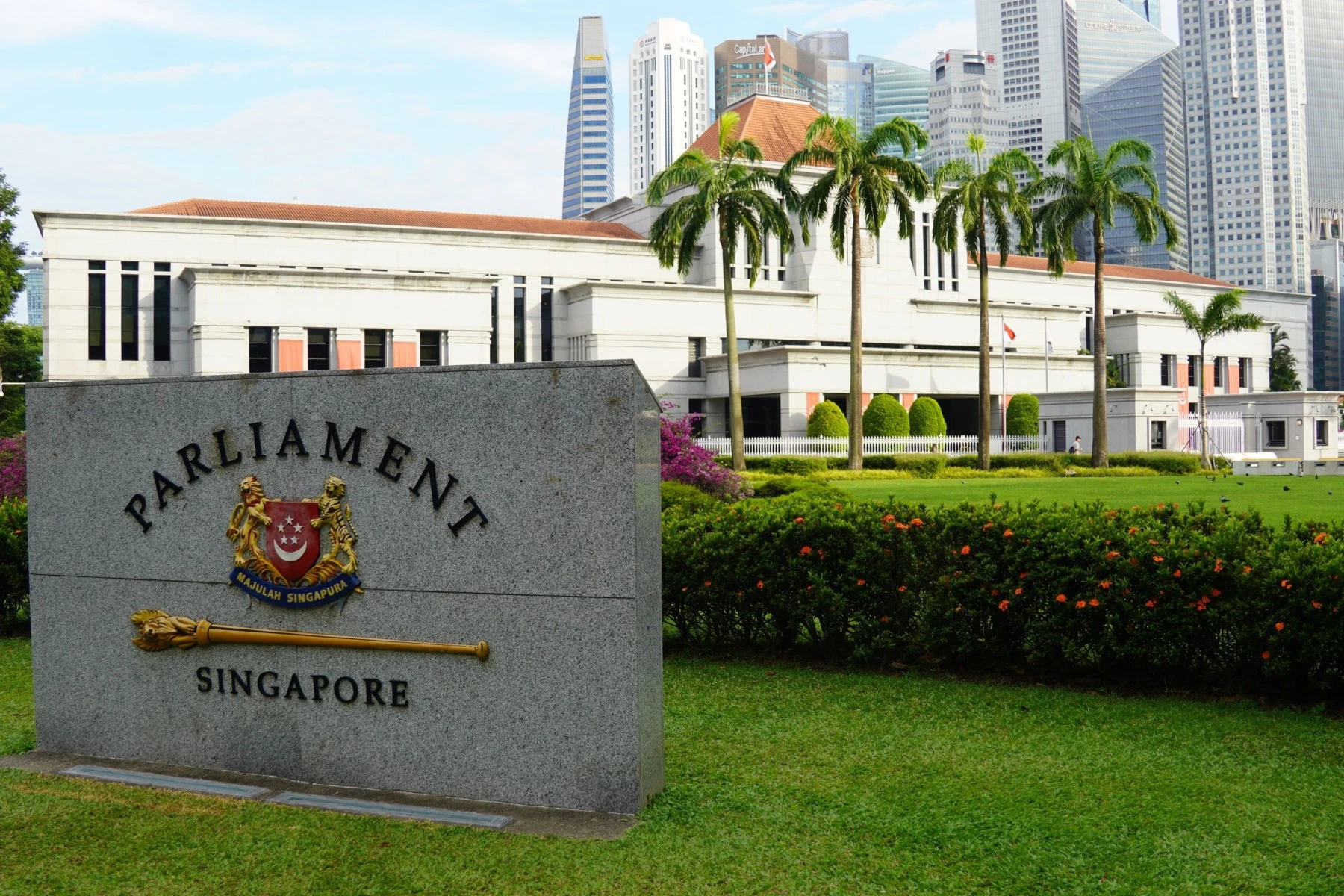
You may be surprised to know that Singapore’s political system is actually a multi-party parliamentary representative democracy. Yes, even though the supermajority of Singapore's Parliament is largely made up of members from its main ruling party, the People’s Action Party (PAP).
Singapore is a republic, with a parliamentary system of government modelled on the Westminster system. There are three separate branches of government:
-
The Legislature (the President and Parliament)
-
The Executive (Cabinet Ministers and office-holders, led by the Prime Minister), and
-
The Judiciary.
In summary, the Legislature makes the laws of Singapore, the Executive carries out the laws, and the Judiciary interprets the law through the Courts.
Singapore is unicameral, with only one House in Parliament. Members of Parliament (MPs) are voted in at the General Elections, which happens once every five years. The leader of the political party that wins the most seats in Parliament will become the Prime Minister, who will in turn select his Ministers from all elected MPs to form the Cabinet.
A unique feature of Singapore’s political system is the Non-Constituency Member of Parliament (NCMP) scheme, which was introduced in 1984 to ensure that there would always be a minimum number of opposition party members (12) represented in Parliament.
Currently, the scheme allows the losing opposition candidates with the highest percentage of votes obtained at the General Election to be offered seats in Parliament if there are fewer than 12 opposition members of Parliament.
As 10 seats were won by the opposition Workers’ Party at the recent 14th General Elections, two NCMP seats were then offered to the opposition candidates with the next highest votes secured—both of whom were Workers’ Party candidates this time round.
The current Prime Minister of Singapore Lawrence Wong was sworn in as the fourth Prime Minister of Singapore in May 2024.
The President of Singapore is the Head of State, representing Singapore at official diplomatic functions and has some executive powers over the Government of Singapore. This includes the final say over the use of the national reserves and the authority over public appointments.
The current President of Singapore is Tharman Shanmugaratnam, who was elected into his position in the September 2023 Presidential Elections.
Singapore's current ruling party
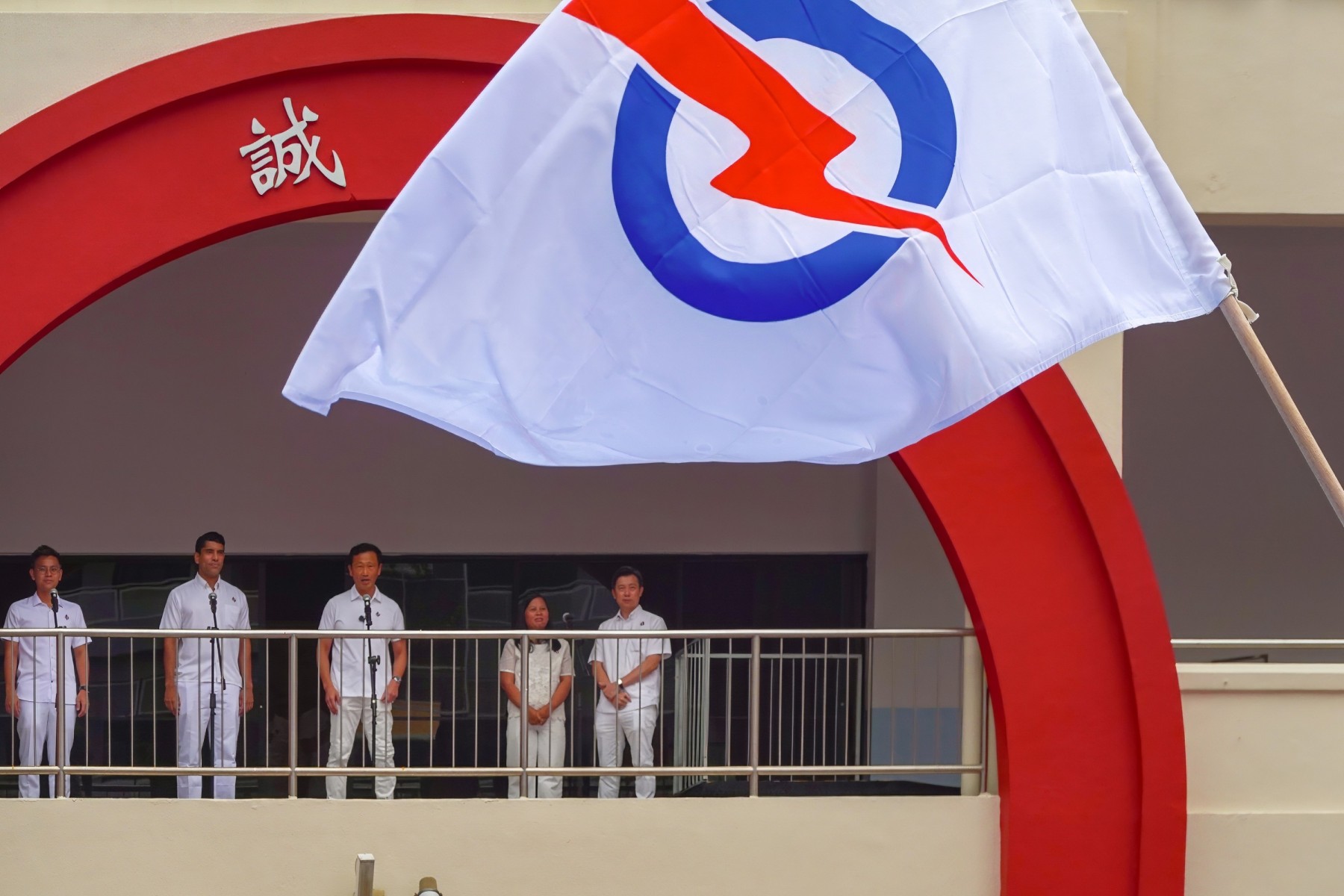 The current ruling party in Singapore is the People’s Action Party (PAP), which has been in power since Singapore's independence in 1965 and was prominent during Singapore's transition from colonial influence.
The current ruling party in Singapore is the People’s Action Party (PAP), which has been in power since Singapore's independence in 1965 and was prominent during Singapore's transition from colonial influence.
Today, the party is considered largely conservative in its policies, with Asian culture and Confucian influences. Most people view the PAP to be centre-right in its orientation, implementing largely socially conservative and economically liberal policies to govern the country.
The party was initially founded in 1954, with Toh Chin Chye as its founding chairman and Lee Kuan Yew as its Secretary-General. The PAP first ran in the 1955 Legislative Assembly General Elections, held under the new Rendel Constitution meant to grant local citizens more autonomy and share some executive powers with the British colonial authorities, as an opposition party contesting the British-backed Singapore Progressive Party. The PAP won three seats out of the 25 seats up for grabs in this election.
The party went on to win the majority vote in the next 1959 General Elections. This was the first election to produce a fully autonomous Cabinet and self-elected Parliament of local residents.
After gaining independence from Britain in 1963, Singapore joined the federation of Malaya and the PAP became an opposition party in the larger Malaysian political landscape once more, despite governing Singapore at a local level. This was short-lived, and Singapore gained full independence as a sovereign state in its own right on 9 August 1965, with the PAP steering the country across the decades since.
The PAP held all seats in Parliament from 1960 to 1980, with Lee Kuan Yew at its helm.
The PAP’s manifesto during the 3 May 2025 General Elections was ‘Changed World, Fresh Team, New Resolve – Securing a Brighter Future for You.’
The party fielded candidates in every constituency at the General Elections and won the supermajority of the seats in Parliament, sweeping 87 out of 97 seats.
Opposition parties
A total of 10 opposition parties contested against the ruling PAP in the 2025 General Elections. Of them, only the Workers’ Party won in any of the constituencies they ran in.
Here’s a quick who’s who, and what their manifestos were at the elections:
Workers’ Party (WP)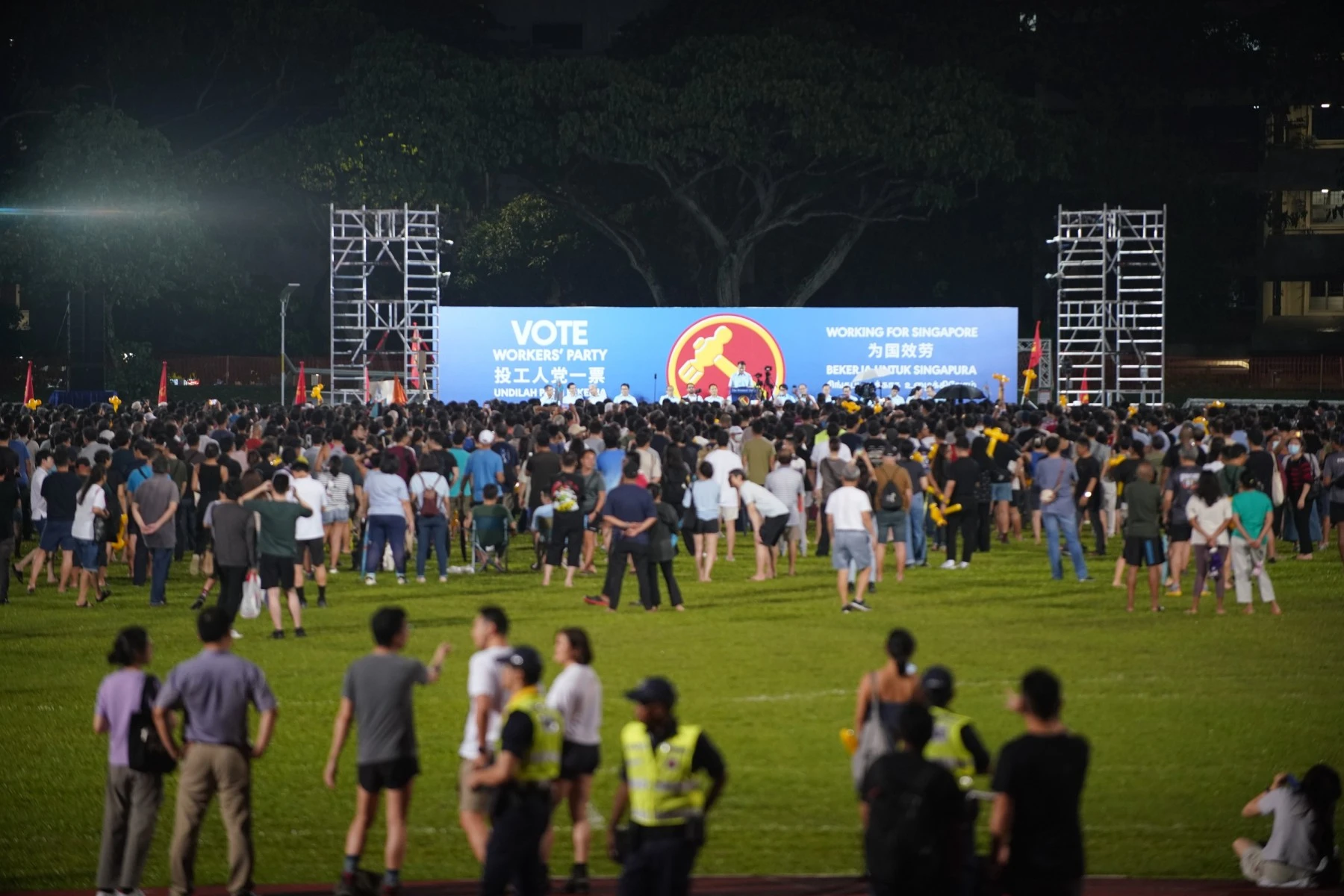
-
Manifesto: "Working for Singapore"
-
Political orientation: Centre-left
Note: WP is the only opposition party that won seats in the Singapore Parliament in the recently concluded General Elections, winning 10 Parliamentary seats and two NCMP seats.
Progress Singapore Party (PSP)
-
Manifesto: "Progress for all"
-
Political orientation: Centre-right, reformist and economically liberal.
People’s Power Party (PPP)
-
Manifesto: "Make Singapore Home Again"
-
Political orientation: Left-wing, democratic socialist and socially conservative.
Singapore Democratic Party (SDP)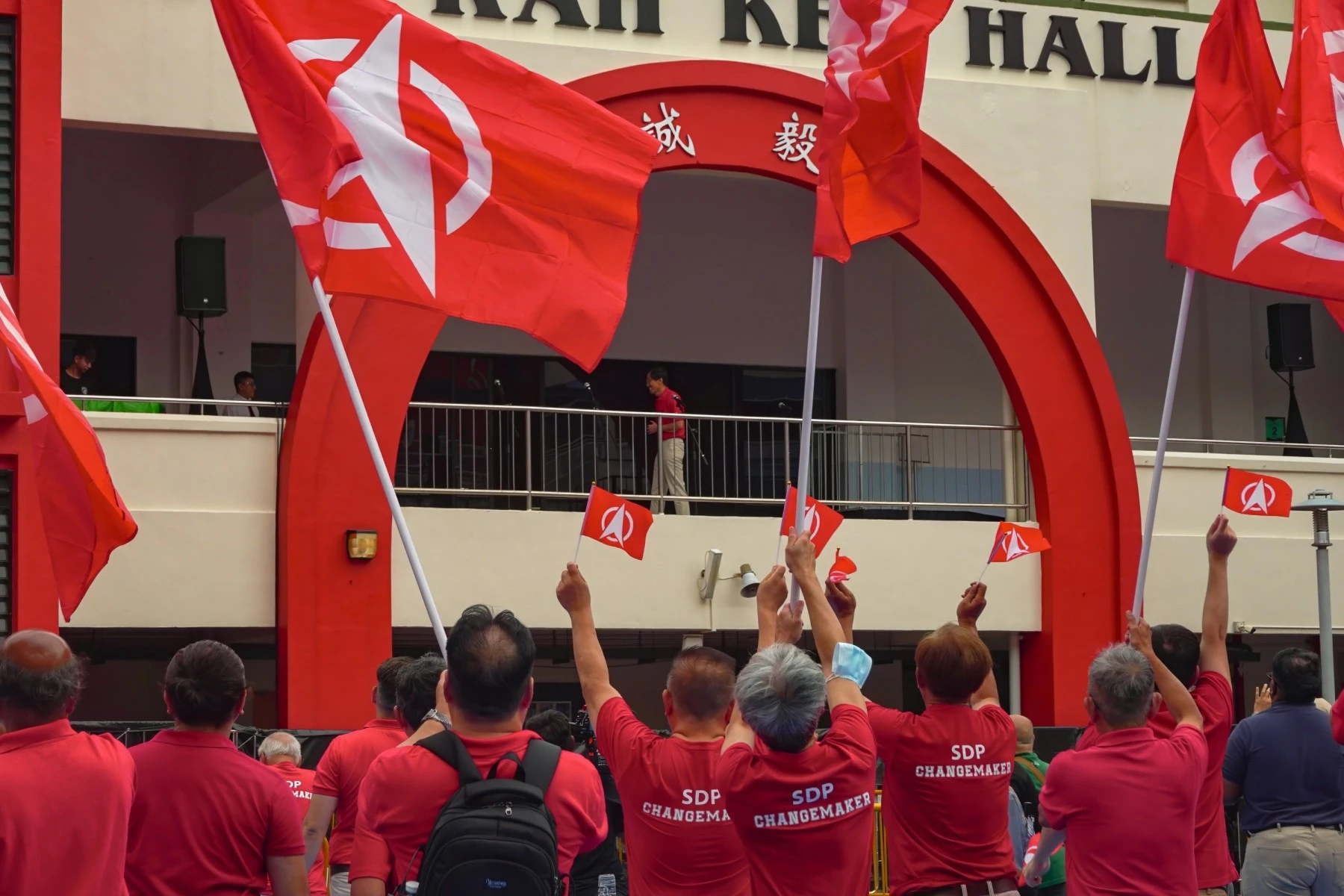
-
Manifesto: "Thrive, Not Just Survive"
-
Political orientation: Centre-left, progressive and civil liberties-focused.
Singapore People’s Party (SPP)
-
Manifesto: "It Is Time"
-
Political orientation: Centre-right, reformist and economically liberal.
Red Dot United (RDU)
-
Manifesto: "First-Class Citizens, Fairer Singapore"
-
Political orientation: Centre-right, social justice oriented.
National Solidarity Party (NSP)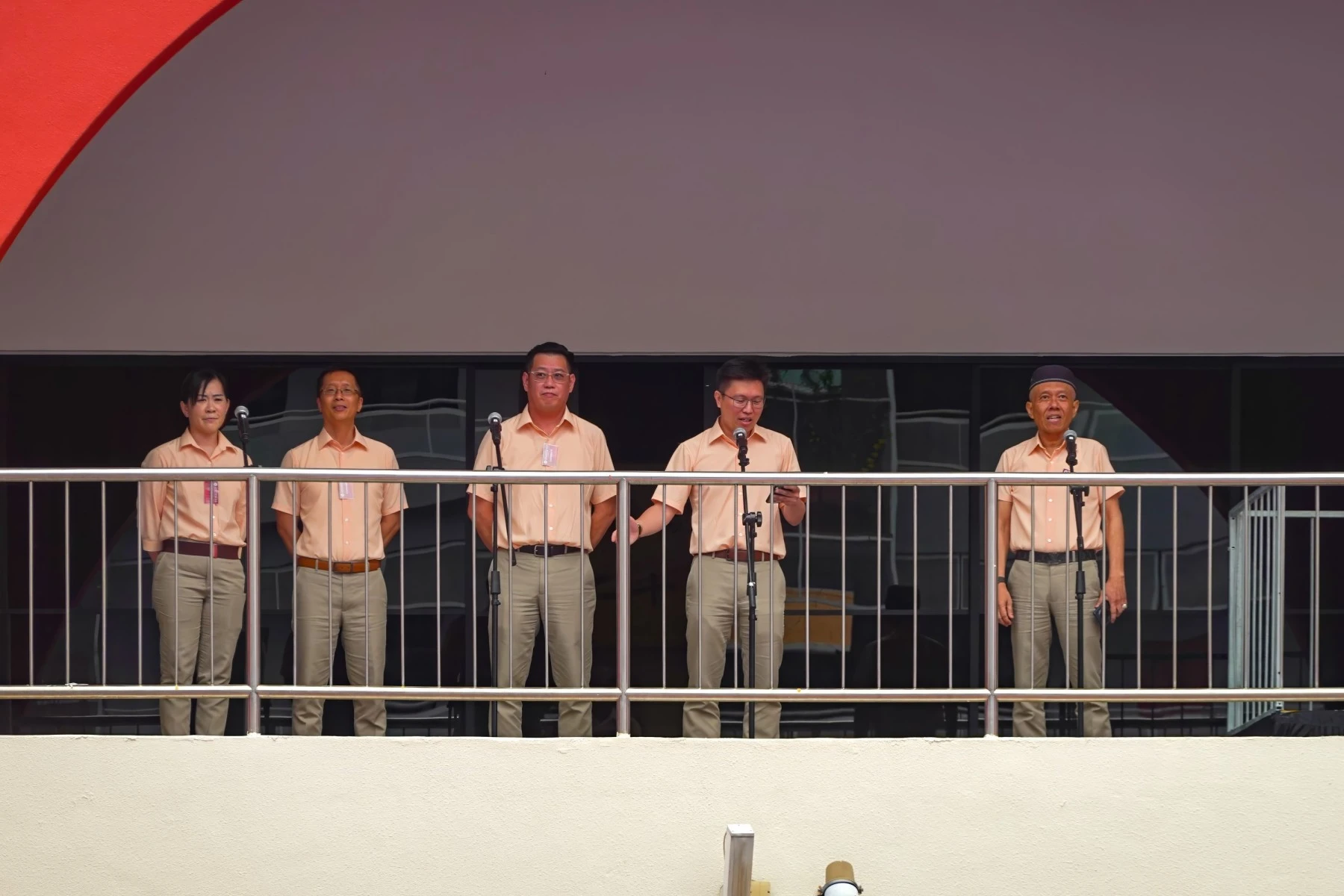
-
Manifesto: "Your Future, Our Priority – A Bright Future for Singapore"
-
Political orientation: Centre-right, populist.
Singapore Democratic Alliance (SDP)
-
Manifesto: "Make Change Happen"
-
Political orientation: Centre-left, progressive and civil liberties-focused.
Singapore United Party (SUP)
-
Manifesto: "Moving Forward, Together"
-
Political orientation: Centre-left, social welfare.
People’s Alliance for Reform (PAR)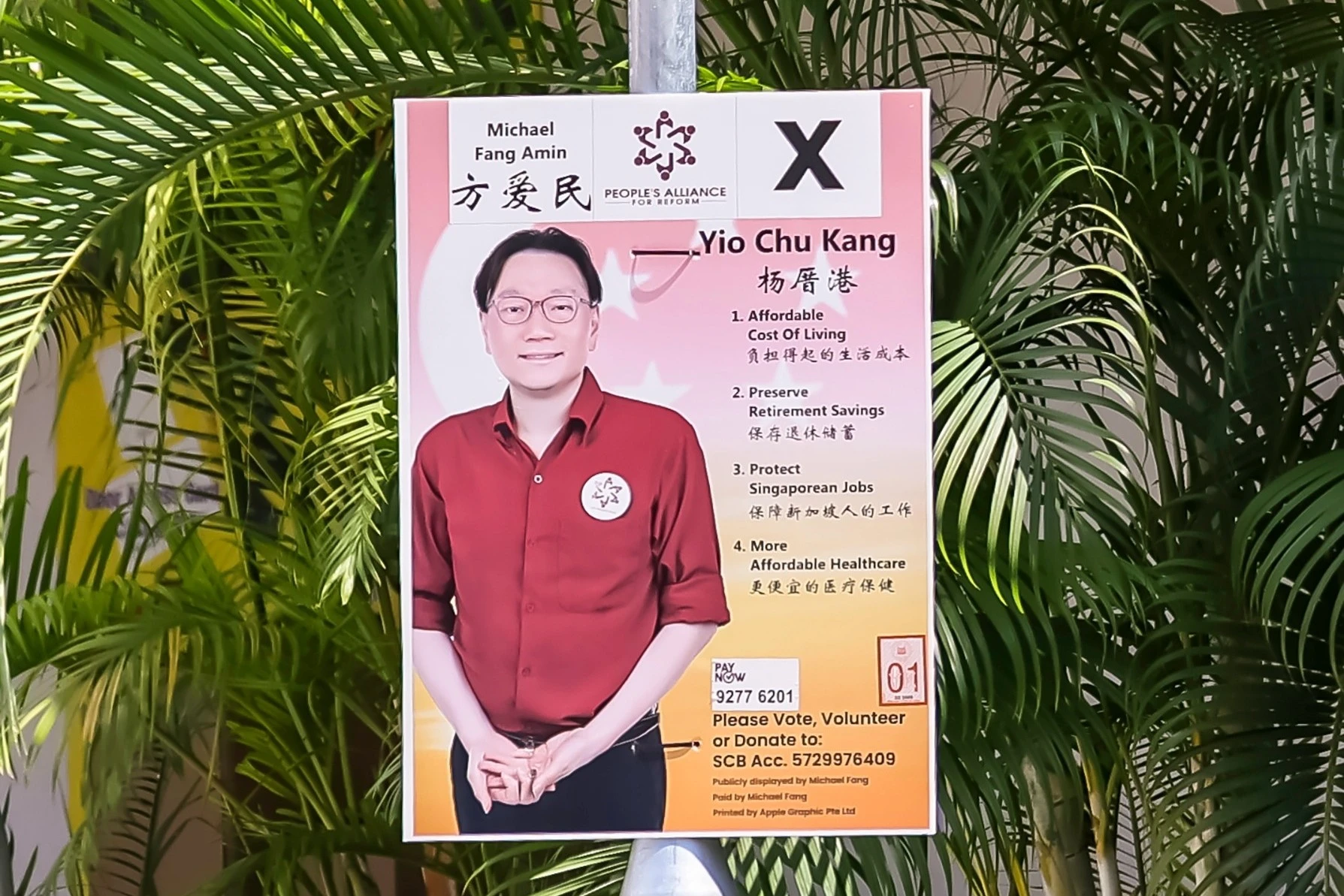
-
Manifesto: "Take Back What Belongs to You"
-
Political orientation: Left-wing, populist and anti-establishment.
Note: A political alliance formed for the 2025 General Elections comprising three member parties—People’s Voices, Reform Party, and Democratic Progressive Party.
Electoral divisions of Singapore
So, where and how are the battle lines drawn for candidates to contest?
Singapore is demarcated into electoral divisions known as constituencies. Each constituency is represented by a Member of Parliament (MP), who will look after the needs and interests of the residents who live there.
There are two types of constituencies in Singapore:
Single Member Constituencies (SMC)
SMCs are as their name suggests. They have a single MP representing their interests in Parliament. The SMC makes up an electoral ward on its own. The Singapore Parliamentary Elections Act states that there must be a minimum of 8 SMCs at any one time.
Group Representation Constituencies (GRCs)
GRCs are unique to Singapore politics. They are multi-member constituencies, where teams of candidates from a single party compete for all the available GRC seats. Each MP will then oversee an electoral ward within the GRC. Every party must include a member of an official minority race (Malay, Indian, or Other). The GRC system was implemented in 1988 in the Parliamentary Elections Act to ensure minority race representation in Parliament.
In the recently concluded General Elections, the smallest GRCs had groups of three, while the largest GRCs had groups of five. There were a total of 15 SMCs and 18 GRCs, which you can view in this interactive map of the electoral divisions of Singapore in the 14th General Elections.
General Elections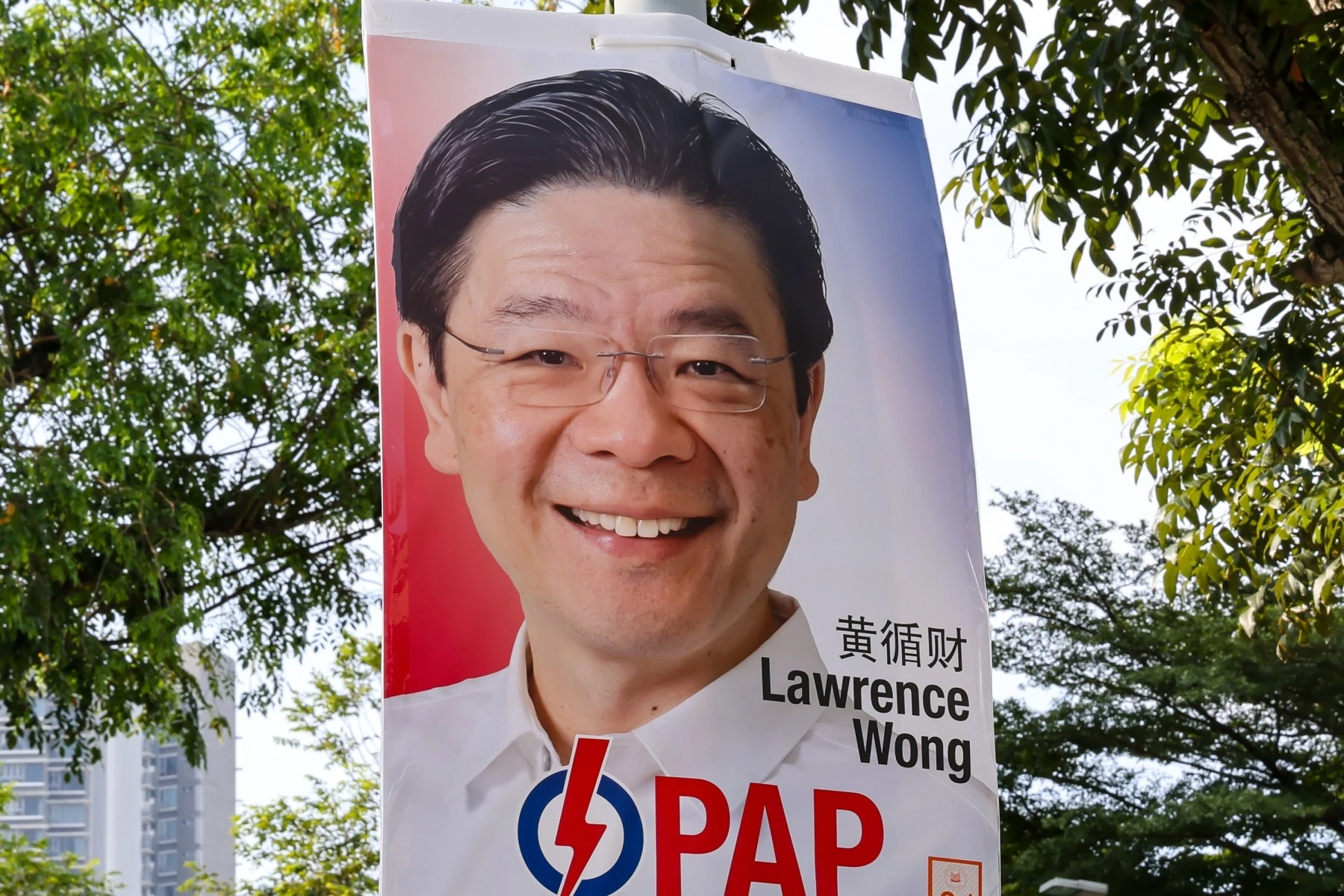
The 14th General Elections in Singapore was held on Saturday, 3 May 2025 to elect 97 Members of Parliament across 33 constituencies This day is known as Polling Day in Singapore and is a Public Holiday.
General Elections are usually held every five years in Singapore. Parliament can also be dissolved and a General Election can be held before the five years are up.
The results of the elections are televised live on the mainstream media networks in Singapore, with a sample vote count of 100 votes from each constituency first announced preliminarily, and the actual votes announced thereafter.
Before Polling Day proper, a series of events took place to ensure everything ran smoothly and the election process was fair and transparent. If you were following the news in the months leading up to Polling Day, you would have noticed a flurry of articles and commentaries appearing everywhere, from the mainstream media to social media sites like X, TikTok, and Instagram.
This is the process that takes place every General Elections:
General Elections process
-
Issuance of Writ of Election: The Writ states when nomination day will be (it cannot be less than five days nor more than a month after the date of the writ), and the places of nomination. The Writ is issued by the President and is determined by the Cabinet’s advice to the Returning Officer, who's in charge of overseeing the conduct of all elections.
-
Application of Minority Certificate: This is required for all candidates who wish to participate as a 'Minority Race Candidate' in a GRC. Interested candidates have to apply to the Malay Community Committee or the Indian / Others Communities Committee for a Minority Certificate stating that they are indeed a member of the ethnic community.
-
Receiving and Declaration of Political Donations: Candidates may only receive donations from Singapore Citizens above the age of 21 or from Singapore-controlled companies based in Singapore or anonymous donations of no more than S$5,000. If more than S$10,000 of donations are received, this must be declared to the Registrar of Political Donations at least two days before Nomination Day. A Political Donation Certificate will be issued if all donations are in order.
-
Nomination Day: All eligible candidates who have fulfilled all the requirements must submit their Nomination papers to the Returning Officer and his/her representatives between 11 am and 12 noon on Nomination Day, at designated Nomination Centres. The paper must be signed by a proposer, a seconder, and four or more persons as assentors, all of whom must be a person on the register of electors for the electoral division in which the candidate is running for election. Candidates must also lodge an election deposit (calculated as three times the deposit required for the General Elections, which is the fixed monthly allowance of MPs in the month immediately before the dissolution of Parliament rounded to the nearest S$500 – this was S$13,500 at the 3 May General Elections).
-
Campaigning Period: All candidates running for Parliament will run their campaigns during this period. This includes content published on social media, hardcopy posters, and participating in mainstream media broadcasts. All participating candidates are not permitted to spend more than S$600,000 or 30 cents for each person in the electoral register (whichever is the higher amount).
-
Cooling-off Period: No new campaigning is allowed, including publishing new campaign material on social media. Existing material need not be taken down and can continue to be displayed.
-
Polling Day: All Singapore citizens above 21 years old must vote at the designated polling stations near their homes between 8 am and 8 pm on Polling Day, which is also a public holiday. After the poll closes at 8 pm, the ballot boxes are sealed and taken to counting centres to be counted. After all votes have been counted (and recounts completed where necessary), the Returning Officer announces the results of the elections, which is usually broadcast live on mainstream media.
Specifically, if you’re interested to see how the timeline stacked up for the 14th General Elections that took place on 3 May, here’s a quick look for you:
Timeline leading up to the General Elections on 3 May 2025
-
22 January 2025: Convocation of the Electoral Boundaries Review Committee (EBRC)—a committee that looks at population shifts and new housing developments in a constituency to determine electoral boundaries for upcoming elections.
-
11 March 2025: Publication of the Electoral Boundaries Report by the Electoral Boundaries Review Committee, announcing the electoral boundaries for the upcoming elections.
-
24 March 2025: Certification of the Registers of Electors—which compiles all qualified electors in an electoral division.
-
15 April 2025: Dissolution of the 14th Parliament of Singapore, and the Writ of Election is issued by President Tharman.
-
23 April 2025: Nomination Day, when prospective candidates filed their papers to stand for elections in their respective electoral divisions. Each candidate or group of candidates had to be accompanied by a proposer, a seconder and at least four assentors, whose names appear in the Register of Electors for the electoral division where they wished to run.
-
23 April – 1 May 2025: Campaigning period. Candidates from the parties held public rallies in the constituencies they were contesting for, appeared on live debates on the main media channels, and walked the ground to speak with their potential supporters.
-
2 May 2025: This was the 'Cooling-off Period' or 'Election Silence'—when no campaigning was allowed, including social media posts, wearing or displaying campaign propaganda, and even re-sharing existing campaign material.
-
3 May 2025: Polling Day took place from 8 am until 8 pm. All eligible citizens reported to their designated polling station (according to their residential address) to cast their vote.
Presidential Elections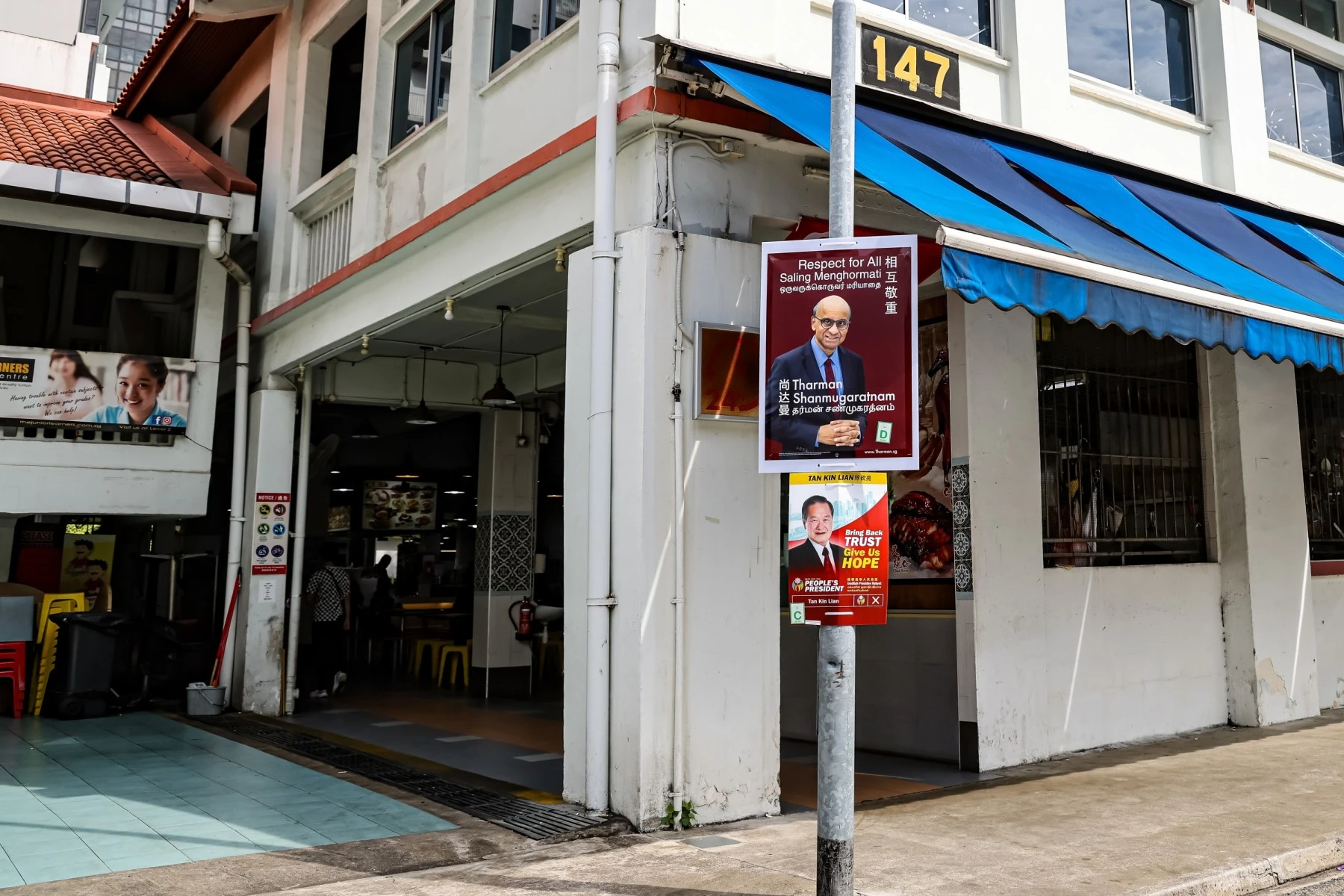
Presidential Elections in Singapore are held every six years to elect the President of Singapore via a popular vote. This was, however, not always the case. Before 1991, the President of Singapore was appointed by Parliament.
The President of Singapore serves a six-year term. There are no limits to the number of terms he or she runs for.
The last Presidential Election was held in September 2023, when Tharman Shanmugaratnam was voted into office.
Presidential Elections process
Here’s a very brief rundown of the process of the Presidential Elections:
-
Issuance of Writ of Election: The writ states when Nomination Day will be (it cannot be less than ten days nor more than a month after the date of the writ), and the place of nomination. The Writ of Election is then issued to the Returning Officer who's in charge of overseeing the conduct of all elections by the Prime Minister.
-
Application for Certificate of Eligibility: All interested candidates must apply for a 'Certificate of Eligibility' to run for the Presidency. This will only be issued if they meet all the requirement criteria below.
-
Application for Community Certificate: All interested candidates must submit a declaration to the ethnic community they consider themselves to be a part of. The Community Committee comprising members from the three ethnic groups (Chinese, Malay, and Indian / Others) then decide on the candidate’s ethnicity based on a set of criteria. This is a new requirement which was implemented on 1 April 2017.
-
Receiving and Declaration of Political Donations: Candidates may only receive donations from Singapore Citizens above the age of 21, from Singapore-controlled companies based in Singapore, or anonymous donations of no more than S$5,000. If more than S$10,000 of donations are received, this must be declared to the Registrar of Political Donations at least two days before Nomination Day. A Political Donation certificate will be issued if all donations are in order.
-
Nomination Day: All eligible candidates who have fulfilled all the requirements determined for the Presidency must submit their Nomination papers to the Elections department between 11 am and 12 noon on Nomination Day. Candidates must also lodge an election deposit (calculated as three times the deposit required for the General Elections, which is the fixed monthly allowance of MPs in the month immediately before the dissolution of Parliament – which came up to S$40,500 for the most recent Presidential Elections in 2023). If two or more candidates are nominated for election, the Returning Officer will assign each candidate a symbol. A notice of the polls and candidates running for the Presidency will also be published in the Government Gazette—the official publication of the Government of Singapore’s Notices, Parliamentary Acts and Bills.
-
Campaigning Period: All candidates running for the Presidency will run their campaigns during this period, which includes content published on social media, hardcopy posters, and taking part in mainstream media broadcasts. All participating candidates are not permitted to spend more than S$600,000 or 30 cents for each person in the electoral register (whichever is the higher amount).
-
Cooling-off Period: Strickly no new campaigning is allowed, including any new campaign material published on social media. Existing materials don't have to be removed and can continue to be displayed.
-
Polling Day: All Singapore citizens above 21 years must vote at the designated polling stations near their homes between 8 am and 8 pm on Polling Day (also a public holiday). After the poll closes at 8 pm, the ballot boxes are sealed and taken to counting centres to be counted. After all votes have been counted (and recounts completed where necessary), the Returning Officer announces the results of the elections, which is usually broadcast live on mainstream media.
Presidential Elections candidate qualifying requirements
There are strict qualification requirements for the President of Singapore, which are as follows:
-
Private sector candidates must have experience running large companies with a paid-up capital of at least S$100 million, in the chairperson or chief executive capacity.
-
Public sector candidates must be key appointment holders, such as Ministers, the Chief Justice, the Speaker of Parliament, the Attorney-General, and Permanent Secretaries.
These strict qualification requirements resulted in walkovers in the 1999, 2005, and 2017 Presidential Elections.
Reserved Elections
Another unique feature of Singapore’s Presidential Elections is Reserved Elections, which are Presidential Elections reserved for a specific ethnic community in Singapore if no one from that ethnic community has been President in the five most recent terms of office. This Constitutional amendment came into effect in April 2017.
This rule most recently came into play in the 2017 Presidential Elections, which was reserved for the Malay community since no one from the Malay community had held the position since 1970. The last Malay President was also Singapore’s very first President, Yusof Ishak.
Who can vote in Singapore’s Elections?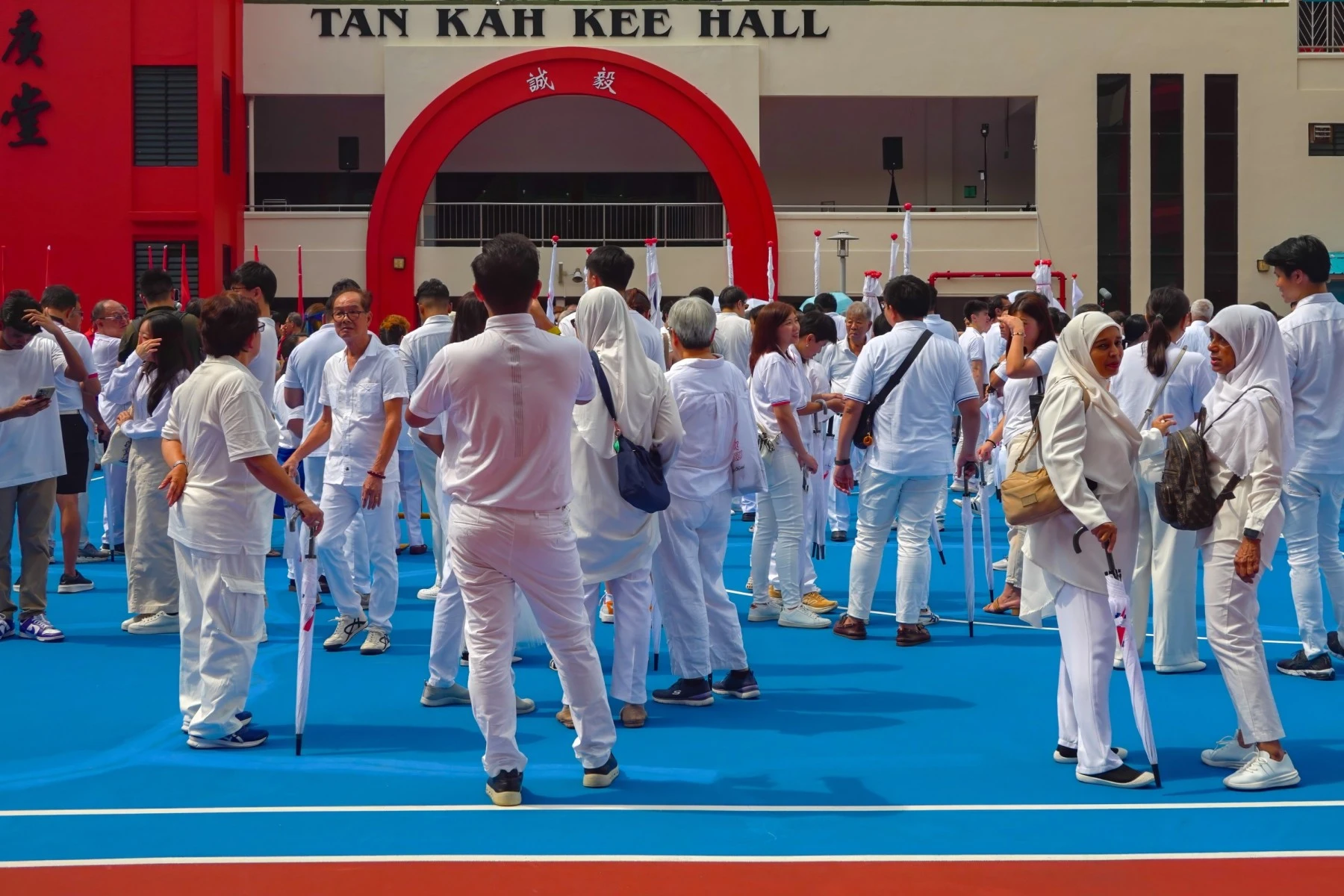
- All Singapore citizens above the age of 21 are technically eligible to vote in Singapore’s General Elections. They will be automatically included in the register of electors.
- If citizens failed to vote in the last elections, their names would be removed from the register of voters and they would have to apply to restore their names in the register. This can be done online, or in person at community centres or clubs.
- Singapore citizens who live overseas and whose names are in the register of voters may vote at overseas missions in their country of residence, which are generally located at the Singapore Embassies or High Commissions.
- Permanent Residents and foreigners are not permitted to vote.
Curious to know more about life in Singapore while you’re here? Stay with us, we’ve got guides aplenty for newcomers to Singapore from a local perspective to help you feel at home in no time.
What do our customers say?




